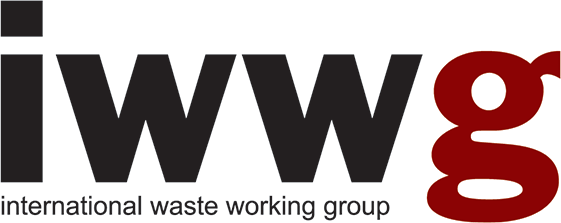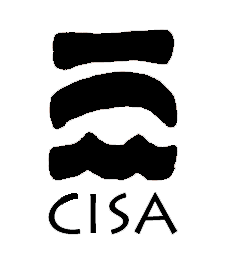FOOD WASTE COLLECTION VERSUS FOOD WASTE DISPOSERS: A CASE STUDY OF A PORTUGUESE CITY
- Pedro Melo Rodrigues - School of Technology and Management, Polytechnic of Guarda, Portugal
- Ricardo Rodrigues - School of Technology and Management, Polytechnic of Guarda, Portugal
- Fátima David - School of Technology and Management,, Polytechnic of Guarda, Portugal
- Nuno Melo - School of Technology and Management, Polytechnic of Guarda, Portugal
- Elisabete Soares - School of Technology and Management, Polytechnic of Guarda, Portugal
- Available online in Detritus - Volume 25 - December 2023
- Pages 3-9
Access restricted to subscribed members only
Released under All rights reserved
Copyright: © 2023 CISA Publisher
Abstract
The European Union (EU) prioritises sustainable development and aims to achieve climate neutrality by 2050 through investments in green technologies and a legislative climate framework. Waste collection and treatment systems, including biowaste like food waste, protect natural capital and citizens' well-being. Directive 2008/98/EC defines biowaste and sets the stage for exploring alternative solutions. This study focuses on the city of Guarda (Portugal) and analyses the use of disposers for food waste treatment. By comparing storage/collection systems with disposers regarding environmental and economic costs and benefits, the study aims to determine the most effective solution for collecting food waste. The analysis utilises a simulator provided by the Portuguese Fundo Ambiental®. The results show that while operating costs are higher for food waste collection systems, disposers require a more significant initial investment. Nevertheless, the cost-benefit ratio favours disposers, while the net present value analysis suggests that the food waste collection system is more favourable. Additionally, food waste collection systems contribute to higher greenhouse gas (GHG) emissions per tonne of food waste compared to using disposers.Keywords
Editorial History
- Received: 05 Sep 2023
- Revised: 01 Dec 2023
- Accepted: 13 Dec 2023
- Available online: 31 Dec 2023
References
AMCB - Associação de Municípios da Cova da Beira, 2021. Dados para aplicação do Simulador de Sistemas de Recolha de Biorresíduos - Versão 1.2 e Versão 1.3. Belmonte: AMCB
APA - Agência Portuguesa do Ambiente, 2020. Relatório Anual - Resíduos Urbanos 2019. Available in: https://www.apambiente.pt/_zdata/Politicas/Residuos/Residuos_Urbanos/RARU_2019_v2.pdf [Accessed in March 2023]
APA - Agência Portuguesa do Ambiente, 2022. Fator de Emissão da Eletricidade 2022. Available in: https://apambiente.pt/sites/default/files/_Clima/Inventarios/2022FEGEEEletricidade.pdf [Accessed in March 2023]
Battistoni, P., Fatone, F., Passacantando, D., Bolzonella, D., 2007. Application of food waste disposers and alternate cycles process in small-decentralized towns: A case study. Water Research, 41(4), 893-903.
DOI 10.1016/j.watres.2006.11.023
Caffaz, S., Bettazzi, E., Scaglione, D., Lubello, C., 2008. An integrated approach in a municipal WWTP: anaerobic codigestion of sludge with organic waste and nutrient removal from supernatant. Water Science & Technology, 58 (3), 669-676.
DOI 10.2166/wst.2008.683
CMG - Câmara Municipal da Guarda, 2021. Dados para aplicação do Simulador de Sistemas de Recolha de Biorresíduos - Versão 1.2 e Versão 1.3. Guarda: CMG
Directive 2008/98/EC of the European Parliament and of the Council of November 19th 2008, on waste and repealing certain Directives. Official Journal of the European Union, L 312, 3-30
EGF - Environment Global Facilities, 2020. Caracterização de Resíduos Urbanos do Sistema Multimunicipal da Cova da Beira - Relatório Final 2019. Linda-a-Velha: EGF
ERSAR - Entidade Reguladora dos Serviços de Águas e Resíduos, 2020. Dados e indicadores do ciclo de avaliação da qualidade do serviço prestado aos utilizadores relativos a 2019. Available in: http://www.ersar.pt/pt/setor/factos-e-numeros/dados-de-base [Accessed in March 2023]
Evans, T., Andersson, P., Wievegg, Å., Carlsson, I., 2010. Surahammar: A case study of the impacts of installing food waste disposers in 50% of households. Water and Environment Journal, 24, 309-319.
DOI 10.1111/j.1747-6593.2010.00238.x
Feng, X., Bao, X., Che, L., Wu, Q., 2021. Enhance biological nitrogen and phosphorus removal in wastewater treatment process by adding food waste fermentation liquid as external carbon source. Biochemical Engineering Journal, 165, 1-6.
DOI 10.1016/j.bej.2020.107811
Galil, N., Yaacov, L., 2001. Analysis of sludge management parameters resulting from the use of domestic garbage disposers. Water Science Technology, 44(10), 27-34.
DOI 10.2166/wst.2001.0572
Iacovidou, E., Ohandja, D., Gronow, J., Voulvoulis, N., 2012. The household use of food waste disposal units as a waste management option: a review. Critical Reviews in Environmental Science and Technology, 42(14), 1485-1508,
DOI 10.1080/10643389.2011.556897
INE - Instituto Nacional de Estatística, 2020. Dados Estatísticos. Available in: https://censos.ine.pt/xportal/xmain?xpid=CENSOS&xpgid=ine_censos_indicadores [Accessed in March 2023]
Kaza, S., Lisa, Y., Perinaz, B., Woerden, F., 2018. What a Waste 2.0: A Global Snapshot of Solid Waste Management to 2050. Urban Development Series. http://hdl.handle.net/10986/30317
Kelemen, M., Furlong, C., 2020. Impacts of Disposers and Food Waste Management. Available in: https://insinkerator.emerson.com/documents/-impact-garbage-disposals-in-waste-management-en-us-7495060.pdf [Accessed in May 2023]
Laso, J., García-Herrero, I., Margallo, M., Bala, A., Fullana-i-Palmer, P., Irabien, A., Aldaco, R., 2019. LCA-Based Comparison of Two Organic Fraction Municipal Solid Waste Collection Systems in Historical Centres in Spain. Energies, 12(7), 1-18.
DOI 10.3390/en12071407
Marashlian, N., El-Fadel, M., 2005. The effect of food waste disposers on municipal waste and wastewater management. Waste Management & Research, 23(1), 20–31.
DOI 10.1177/0734242X05050078
Mehta, Y.D., Shastri, Y., Joseph, B., 2018. Economic analysis and life cycle impact assessment of municipal solid waste (MSW) disposal: A case study of Mumbai, India. Waste Management & Research: The Journal for a Sustainable Circular Economy, 36(2): 1177-1189.
DOI 10.1177/0734242X18790
Morelli, B., Cashman, S., Ma, X., Turgeon, J., Arden, S., Garland, J., 2020. Environmental and cost benefits of co-digesting food waste at wastewater treatment facilities. Water Science & Technology, 82 (2), 227-241.
DOI 10.2166/wst.2020.104
Nilsson, P., Hallin, P., Johansson, J., Karlén, L., Lilja, G., Pettersson, B., Pettersson, J., 1990. Source Separation with Food Waste Disposers: A Case Study from Staffanstorp. Report REFORSK FoU number 54, Lund, Sweden
Nowak, O., 2006. Optimizing the Use of Sludge Treatment Facilities at Municipal WWTPs, Journal of Environmental Science and Health, Part A, 41 (9), 1807-1817.
DOI 10.1080/10934520600778986
Ritchie, H., Roser, M., 2018. Urbanisation. Available in: https://ourworldindata.org/urbanization [Accessed in May Sahu, P., Shelare, S.D., & Sakhale, C.N., 2020. Smart Cities Waste Management and Disposal System by Smart System: A Review. International Journal of Scientific & Tecnology Research, 9 (3), 4467-4470
Saraiva, B., Davidsson, Å, Bissmont, M., 2016. Lifecycle assessment of a system for food waste disposers to tank - A full-scale system evaluation. Waste Management, 54,169-77.
DOI 10.1016/j.wasman.2016.04.036
2023]
Shure, M., 2021. TIL garbage disposals were illegal in New York City for decades. Available in: https://thetakeout.com/garbage-disposals-used-to-be-illegal-in-nyc-1846021027 [Accessed in May 2023]
Tang, J., Wang, X., Hu, Y., Pu, Y., Huang, J., Ngo, H., Zeng, Y., Li, Y., 2019. Nutrients removal performance and sludge properties using anaerobic fermentation slurry from food waste as an external carbon source for wastewater treatment. Bioresource Technology, 271, 125-135.
DOI 10.1016/j.biortech.2018.09.087
Thomas, P., 2011. The effects of food waste disposers on the wastewater system: a practical study. Water and Environment Journal, 25, 250-256.
DOI 10.1111/j.1747-6593.2010.00217.x
Trabold, T., Nair, V., 2018. Conventional Food Waste Management Methods, Sustainable Food Waste-To-Energy Systems. Elsevier Inc.
DOI 10.1016/B978-0-12-811157-4.00003-6
Zan, F., Iqbal, A., Lu, X., Wu, X., Chen, G., 2022. “Food waste-wastewater-energy/resource” nexus: Integrating food waste management with wastewater treatment towards urban sustainability. Water Research, 211, 1-14.
DOI 10.1016/j.watres.2022.118089



